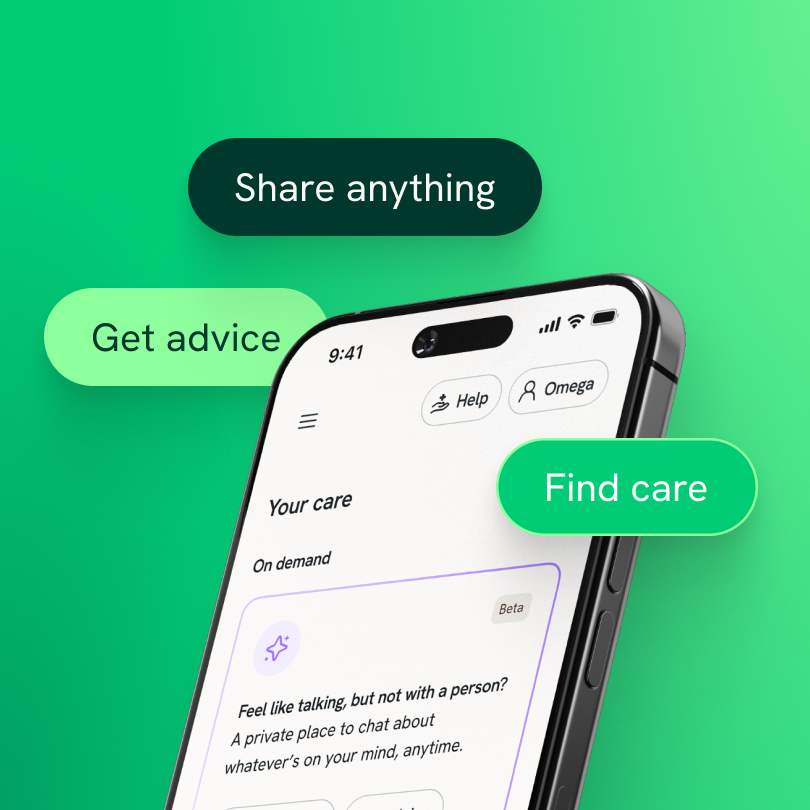Jump to section
Are you feeling tired? You’re not alone.
A recent study by the Centers for Disease Control and Prevention found that 13.5% of American adults felt “very tired” or “exhausted” most days. That’s almost four and a half million people! It’s tough to function at our best when we’re too tired, whether at work or in our personal lives.
While employers could prioritize employee well-being simply because it’s the right thing to do, it also makes sense for business. Well-rested employees are more productive and perform better. Here are some tips to help your team foster healthy sleeping habits.
Implement relaxation and self-care programs
When workplaces embrace a culture of self care and relaxation, employees can enjoy reduced stress, better rest, and an enhanced work-life balance, ultimately boosting overall well-being and productivity.
Integrating self-care initiatives within the company’s framework allows employers to champion these values authentically. This approach helps employees recognize a genuine commitment to their well-being, moving beyond lip service to self-care without unrealistic expectations.
Implementing the following programs can make a meaningful difference:
- Relaxation spaces: Create calm areas within the workplace where employees can take breaks to promote rest
- Mental health resources: Provide therapy and coaching options that employees can access at their discretion, supporting individual well-being and helping them develop personalized best practices
- No-questions-asked personal days: Encourage using personal or “mental health days” without requiring employees to disclose reasons, allowing them to meet their needs without unnecessary explanations
- Time autonomy: Avoid micromanaging time through constant productivity tracking. If your employees meet expectations, trust them to manage their time effectively
Rather than opting for time-consuming training programs on self care, leaders can benefit from training that focuses on creating an environment conducive to well-being. This shift recognizes that employee time is valuable, and fostering a supportive atmosphere often yields more meaningful results than formal workshops.
Creating a sleep-friendly work environment
While technology enhances accessibility and accommodations, it has also brought about a cultural shift that can disrupt work-life balance and impede adequate rest and sleep opportunities.
Even in organizations with standard work hours, employees are increasingly expected to be available during evenings, weekends, and vacations. Your organization can shift by using technology to increase employee freedom without sacrificing productivity.
Flexible scheduling
Tasks don't need to be bound to the nine-to-five window. Allow employees to choose their work hours based on what suits them best.
Everyone operates on different circadian rhythms, hitting their peak at various times. If the job allows for remote work, empowering employees to set their clock-in times is a straightforward solution.
Boundaries in communication policies
When employees work hours aligned with their individual needs, it naturally leads to diverse schedules. Luckily, communication today is flexible. Emails can be sent anytime, with the understanding that recipients respond when ready.
To foster employee rest and sleep, a simple approach is to ensure they are “off the clock” beyond their designated work hours, eliminating the expectation for immediate message responses.
Supporting consistent bedtime routines
Implementing bedtime routines and dictating sleep hygiene would be odd and inappropriate for employers. However, management can facilitate an environment that encourages adequate sleep for employees.
Understanding the importance of rest
The temptation to push for constant expansion and more output can lead to employee burnout. Instead, prioritize a sustainable approach by fostering a culture of care that encourages employees to rest when needed.
Respecting work-life balance
While many managers claim to prioritize work-life balance, their actions sometimes contradict this philosophy. They may assert that responding after hours is unnecessary but penalize those who wait until business hours. Less overtly, promotions or bonuses may favor those who consistently go “above and beyond.”
To genuinely support work-life balance, avoid expecting the “extra mile” from employees.
Scheduling flexibility
Recognizing the uniqueness of each person’s sleep and rest needs, granting flexibility in scheduling empowers employees to prioritize their rest and align with their natural body cycles. Emphasize the desired outcomes rather than fixating on specific hours people “should” work.
Strategies for better sleep
To enhance the likelihood of employees enjoying restful sleep, beyond easing productivity expectations, employers can take the following measures:
- Acknowledge workplace stressors, such as deadlines or busy periods, and prioritize breaks and rest, even if it momentarily affects productivity.
- Refrain from reaching out to employees outside their scheduled work hours. If unavoidable, make it clear that responses are not mandatory.
- Foster an environment for anonymous feedback to understand how management can better meet employee needs and promptly implement received feedback.
- Encourage employees to fully disconnect outside of business hours.
- Provide robust mental health support and healthcare benefits, ensuring employees can access care, treatment, and support quickly.
Measuring and celebrating success
Measuring concepts like rest, self-care, and personal well-being can be challenging. However, demonstrating a commitment to employee well-being involves more than just launching initiatives—it requires assessing outcomes.
Encourage direct feedback from employees, even anonymously if needed, regarding the effectiveness of any initiatives. Actively incorporate their input, showcasing a genuine commitment to improvement rather than mere lip service.
Celebrate successes and highlight effective strategies, encouraging employees to leverage resources that genuinely enhance their well-being. This approach reinforces the organization’s dedication to tangible and meaningful results.
Sleep well, work well
In the hustle of a fast-paced, productivity-driven business environment, sleep and rest often take a backseat. Organizations must prioritize self-care to promote employee well-being and nurture good mental health.
Offering resources that empower employees to embrace work-life balance and prioritize rest is essential for fostering a healthier workplace culture.
Discover three ways employers can help employees sleep better while saving on costs linked to fatigue-related lost productivity.






